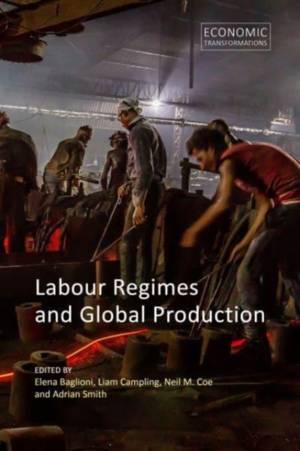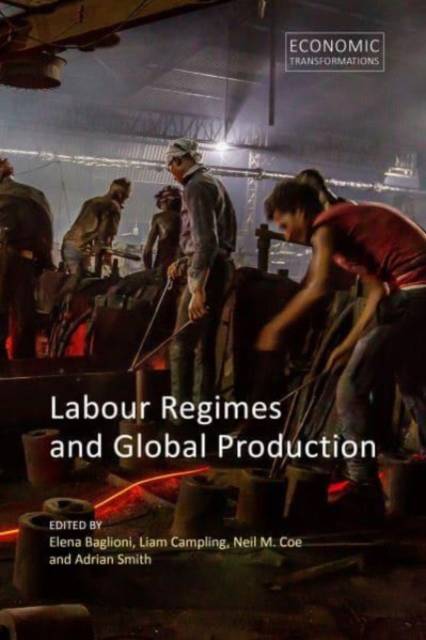
- Retrait gratuit dans votre magasin Club
- 7.000.000 titres dans notre catalogue
- Payer en toute sécurité
- Toujours un magasin près de chez vous
- Retrait gratuit dans votre magasin Club
- 7.000.0000 titres dans notre catalogue
- Payer en toute sécurité
- Toujours un magasin près de chez vous
Labour Regimes and Global Production
40,95 €
+ 81 points
Description
There has been a recent resurgence in interest in the theorization of labour regimes in various disciplines. This has taken the form of a concern to understand the role that labour regimes play in the structuring, organization and dynamics of global systems of production and reproduction. The concept has a long heritage that can be traced back to the 1970s and the contributions to this book seek to develop further this emerging field.
The book traces the intellectual development of labour regime concepts across various disciplines, notably political economy, development studies, sociology and geography. Building on these foundations it considers conceptual debates around labour regimes and global production relating to issues of scale, informality, gender, race, social reproduction, ecology and migration, and offers new insights into the work conditions of global production chains from Amazon's warehouses in the United States, to industrial production networks in the Global South, and to the dormitory towns of migrant workers in Czechia. It also explores recent mobilizations of labour regime analysis in relation to methods, theory and research practice.Spécifications
Parties prenantes
- Editeur:
Contenu
- Nombre de pages :
- 352
- Langue:
- Anglais
- Collection :
Caractéristiques
- EAN:
- 9781788216791
- Date de parution :
- 17-10-23
- Format:
- Livre broché
- Format numérique:
- Trade paperback (VS)
- Dimensions :
- 152 mm x 231 mm
- Poids :
- 544 g

Les avis
Nous publions uniquement les avis qui respectent les conditions requises. Consultez nos conditions pour les avis.





